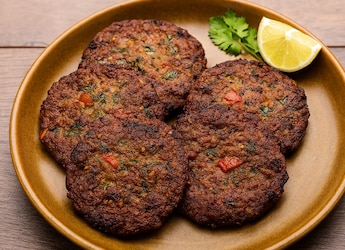Curd has always been a breakfast staple in Indian homes. And now, as more people switch to healthier habits, probiotic curd is gaining well-deserved attention. With live, beneficial bacteria, it is not just another dairy item. It is a delicious addition to your plate that can influence how your body feels from the inside. If you have ever asked yourself what happens when you eat curd every day for a month, this article breaks it down. A simple bowl has the potential to make significant internal changes without any fuss. This is what really happens when you eat probiotic curd daily for a whole month.
Also Read: What Happens When You Eat Soaked Almonds Every Day For A Month
5 Benefits Of Eating Curd Every Day For A Month
1. Daily Curd Helps Improve Digestion
Probiotic curd contains live cultures that support the digestive system. As per a 2022 research paper, including probiotic curd in your daily diet can help relieve bloating, constipation and overall digestive discomfort. With time, you may notice a lighter stomach and more regular digestion. The probiotics present in curd, including Lactobacillus and Bifidobacterium, support the gut lining and assist the body in processing food correctly. Better digestion sets the foundation for the benefits that follow.
2. Eating Curd Can Benefit Your Skin
There is a strong connection between the gut and the skin. A 2013 research paper states that probiotic curd can help reduce inflammation from within. A 2015 research paper also notes that probiotics can indirectly help acne-prone skin by supporting gut balance. Curd also contains lactic acid and protein that help maintain hydration and elasticity. As digestion improves from the earlier benefit, your skin can appear calmer and naturally nourished.
3. Curd Can Strengthen Immunity
A healthier gut is closely tied to better immunity. As per a 2014 research paper, the good bacteria in probiotic curd support the body's natural defence system by encouraging the growth of beneficial microbes. Over a few weeks of eating curd every day, you may notice fewer days lost to minor infections or seasonal sniffles. A smoother-functioning immune system often follows improved skin and digestion.
4. Your Body Absorbs Nutrients More Efficiently
Once gut health improves, vitamin and mineral absorption improves too. Regularly eating probiotic curd can make the gut environment more efficient at breaking down food and making nutrients available to the body. Better nutrient absorption means less sluggishness after meals and steady energy throughout the day. It further supports the immune boost mentioned earlier.
5. You Feel More Energetic And Lighter
With digestion, skin health, immunity and nutrient absorption all working together, your entire body begins to feel lighter and more active. Probiotic curd can help reduce bloating and heavy feelings that come from processed food or irregular eating habits. Eating it daily helps gut function remain stable, leaving you with a general sense of improved well-being.
What Is The Best Time To Eat Curd
For maximum benefit, the best time to eat probiotic curd is during the daytime. It supports digestion and helps maintain a cooled body temperature when eaten with lunch.
As for night-time, Nutritionist Shilpa Arora says, “It is absolutely fine to have curd at night. For dinner, opt for chaas or raita (maybe mint and jeera raita) to aid digestion. You could also add fenugreek to calm the stomach of any indigestion.”
Dietician Meher Rajput from FITPASS says that curd is an excellent source of good bacteria, but notes that some may find it heavy. In such cases, buttermilk is a comfortable alternative. She adds, “It is advisable to have curd or buttermilk (which is easy to digest) at night, but occasionally, with about 1/4 tsp of black pepper, as black pepper is known to have heat-producing properties.” This advice pairs well with the earlier point on overall gut balance.
Homemade Curd Vs Store-Bought Curd
Homemade and packaged curd both have their advantages. Nutritionist Amita Gadre explains that homemade curd offers freshness and higher nutritional value, especially when eaten within one or two days. It is free from preservatives and additives usually found in store-bought choices. It is also budget-friendly, especially for regular curd eaters.
Store-bought curd, meanwhile, has convenience on its side. From Greek yoghurt to high-protein and low-fat versions, there is something that suits every routine. It also offers consistency in taste and texture. If you are too occupied to set curd at home, this is a reliable option. However, the expert suggests checking the label for “lactobacilli culture” and choosing varieties with not more than five grams of added sugar. Expiry dates need a careful look as well. These considerations help you retain the nutritional gains highlighted earlier.
Also Read: Milk vs Curd: Which Is Better For Weight Loss And Gut Health
Easy Ways To Add Probiotic Curd To Your Diet
If you want to eat curd daily but need some ideas, here are some simple ways that also connect back to the benefits mentioned:
1. Blending and Mixing: Add curd to smoothies or overnight oats to support digestion while improving breakfast nutrition.
2. Savoury Bases: Use curd in salad dressings or dips like tzatziki or hung-curd spreads that go well with protein-rich meals.
3. Breakfast Pairings: Combine curd with fruits, seeds or granola to start the day with a gut-friendly boost.
4. Lunch Companions: Include curd with parathas or rice to support a light and comfortable stomach through the afternoon.
So, go on, and add probiotic curd to your daily routine if you still have not. A small bowl each day can have a meaningful impact on how you feel.
Disclaimer: This content including advice provides generic information only. It is in no way a substitute for qualified medical opinion. Always consult a specialist or your doctor for more information. NDTV does not claim responsibility for this information.
